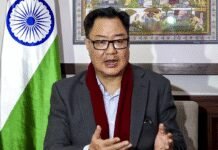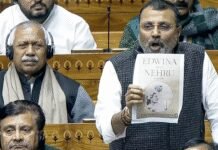NEW DELHI: After Pakistan army chief Asim Munir issued a nuclear threat, Bilawal Bhutto threatened India over the suspension of Indus Water Treaty. Bhutto, a former Pakistani foreign minister, accused India of inflicting “great damage” on Pakistan and called for national unity against Prime Minister Narendra Modi.“United as one, we must raise our voices against this oppression. I know that you have the strength, that the people of this nation have the strength, that whatever the situation—even in war—we can face them, and reclaim what has been taken from you—the six rivers—and if they force us to,” Bhutto declared.“Pakistan did not start this war; we have always spoken of peace. Shah, Pakistan’s representatives have gone all over the world, we spoke of peace, but India spoke of war. But now that war has been started, we, Shah Abdul Aziz, would like to tell the Modi government from this land that we do not back down, we do not bow. And if you think of carrying out such an attack towards the Indus, then the people of every province of Pakistan are ready to confront you, and this is a war you will surely lose,” he added.Munir’s comments, made during a visit to Florida, marked his second trip to the US since Operation Sindoor. He declared that Pakistan, as a nuclear nation, would not hesitate to take drastic measures if faced with an existential threat, stating, “if we think we are going down, we’ll take half the world down with us.”In response, India has strongly condemned Munir’s “nuclear sabre-rattling,” with MEA spokesperson Randhir Jaiswal criticizing the remarks as Pakistan’s “stock-in-trade.” Jaiswal expressed regret that Munir raised the specter of nuclear war from the US, a friendly third country, and reiterated India’s stance against nuclear blackmail, emphasizing that India will take all necessary steps to safeguard its national security. He labeled Munir’s threat as “irresponsible,” reinforcing concerns about the integrity of Pakistan’s nuclear command and control, especially given the military’s alleged ties with terrorist groups.









